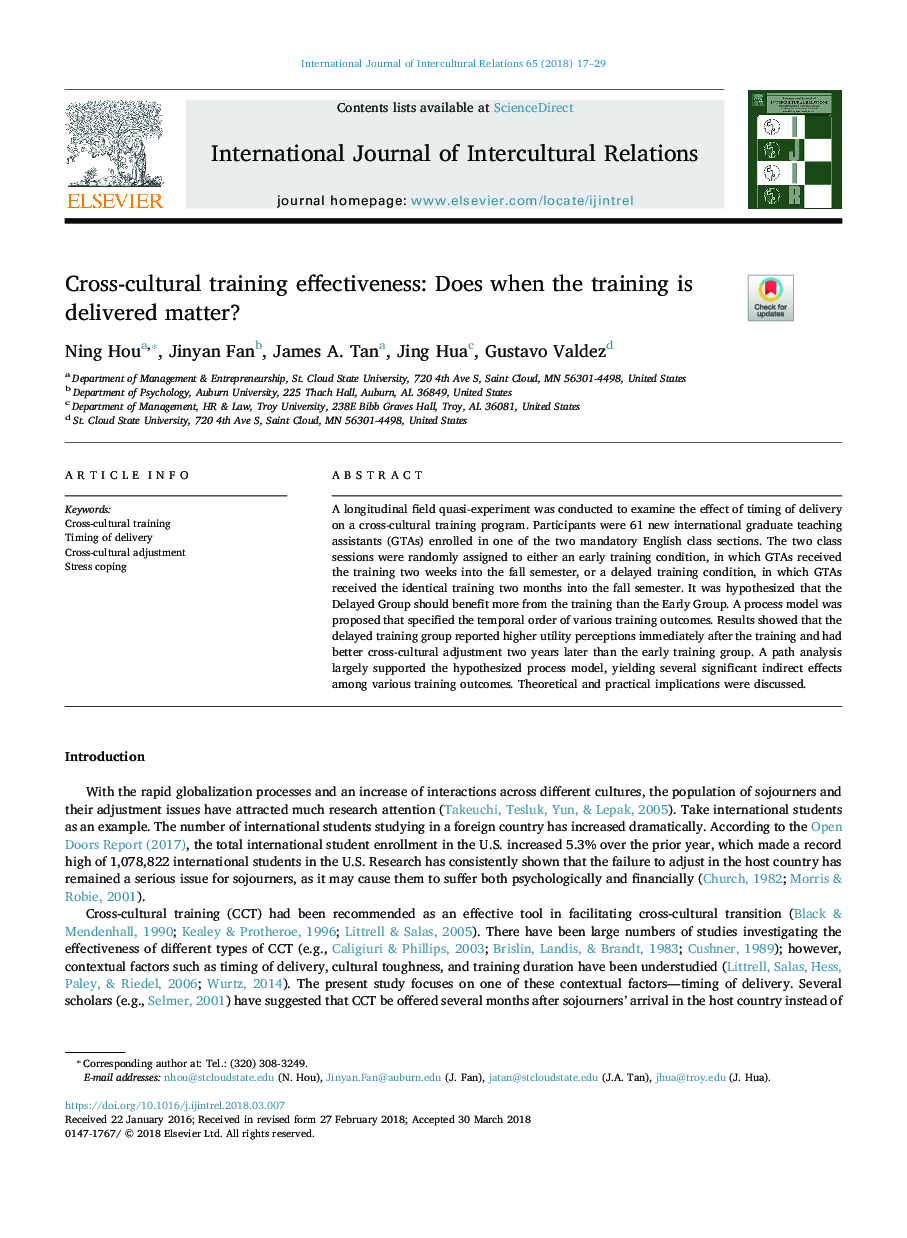| Article ID | Journal | Published Year | Pages | File Type |
|---|---|---|---|---|
| 7323602 | International Journal of Intercultural Relations | 2018 | 13 Pages |
Abstract
A longitudinal field quasi-experiment was conducted to examine the effect of timing of delivery on a cross-cultural training program. Participants were 61 new international graduate teaching assistants (GTAs) enrolled in one of the two mandatory English class sections. The two class sessions were randomly assigned to either an early training condition, in which GTAs received the training two weeks into the fall semester, or a delayed training condition, in which GTAs received the identical training two months into the fall semester. It was hypothesized that the Delayed Group should benefit more from the training than the Early Group. A process model was proposed that specified the temporal order of various training outcomes. Results showed that the delayed training group reported higher utility perceptions immediately after the training and had better cross-cultural adjustment two years later than the early training group. A path analysis largely supported the hypothesized process model, yielding several significant indirect effects among various training outcomes. Theoretical and practical implications were discussed.
Related Topics
Social Sciences and Humanities
Business, Management and Accounting
Business and International Management
Authors
Ning Hou, Jinyan Fan, James A. Tan, Jing Hua, Gustavo Valdez,
